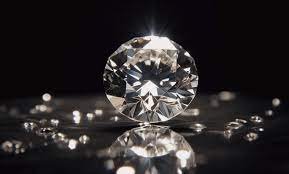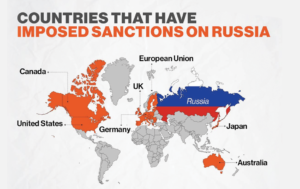The European Union placed penalties on January 3rd against the CEO of Russia’s state-run diamond company, Alrosa. This was as a part of a prohibition on imports of precious stones due to the conflict in Ukraine.
In December, the EU decided to forbid the export of diamonds from Russia as part of stricter sanctions meant to severely deplete the Kremlin’s financial reserves.
The largest diamond mining firm in the world, Alrosa, and its CEO, Pavel Marinychev, were added to a blacklist by the 27-nation union, putting them on the verge of a visa ban and an asset freeze in the EU. Ninety percent of Russia’s production of diamonds, estimated to be worth $4 billion in 2022, comes from Alrosa.
The European Ban targeting Russia
The EU embargo, which targets Russian exports of both natural and synthetic diamonds, went into effect on January 1.
By September, there will be a gradual ban on Russian diamonds treated in foreign nations.
After laborious talks with the G7 for months to establish a system to track Russian diamonds, the EU banned them.
Belgium emphasized that the system had to be implemented for any embargo to be successful, as it is home to the biggest diamond trading hub in the world.
Since the full-scale invasion of Ukraine by Russian President Vladimir Putin in February 2022, the EU has imposed 12 rounds of sanctions on Moscow.

The 27 EU members’ envoys resolved the most recent round of penalties last month, but it was not legally adopted due to Austria’s objection, which was later overturned.
“We will always be there for Ukraine, no matter what,” stated Ursula von der Leyen, the head of the European Commission.
Natural and synthetic Russian diamonds, as well as jewelry made with them, are prohibited by the EU as of January 24, and Russian diamonds cut in other nations are prohibited as of September 2024.
The estimated $4–$5 billion in annual revenue from diamond sales is allegedly used by Moscow to bolster its war chest.
After the G7 approved the ban, Belgium—which has a significant diamond business hub in its city of Antwerp—dropped its opposition to it.
The European Unions’ sanctions on Russia
An additional round of sanctions on Russia has been adopted by the European Union. They are intended to limit Russia’s ability to obtain the money, metals, and technology it needs to continue its war effort.
The industry has put out a number of suggestions, such as a tracking system, to lessen the impact of the fines on the company.
The sanctions package adds 29 more businesses to a list of entities forbidden from exporting goods capable of assisting Russia’s arms industry, further extending EU attempts to restrict technology Moscow can obtain for military purposes.
According to a statement from the European Council, some of those businesses are allegedly hiding from the EU’s penalties since they are based in non-EU nations.
Certain nations, including Kazakhstan, are charged with assisting Russia in importing specific goods and technologies that could support its armed forces.
Additionally, the EU wants stronger enforcement of earlier sanctions against Russia’s oil exports, which set a $60 per barrel price restriction for its petroleum.
By constructing a “dark fleet” of oil tankers and with assistance from China and India, Russia has been able to elude that measure, according to research by Carnegie Russia Eurasia Center scholar Alexandra Prokopenko.
In a statement from the European Council, the European Union nations decided to establish a “strengthened information sharing mechanism” for tankers that would allow them to identify ships that are engaged in activities like ship-to-ship oil transfers at sea.
Russia seems to be going down the hill with its continuation of Ukrainian war and earning quite some resentment from EU Council.












Comments 1